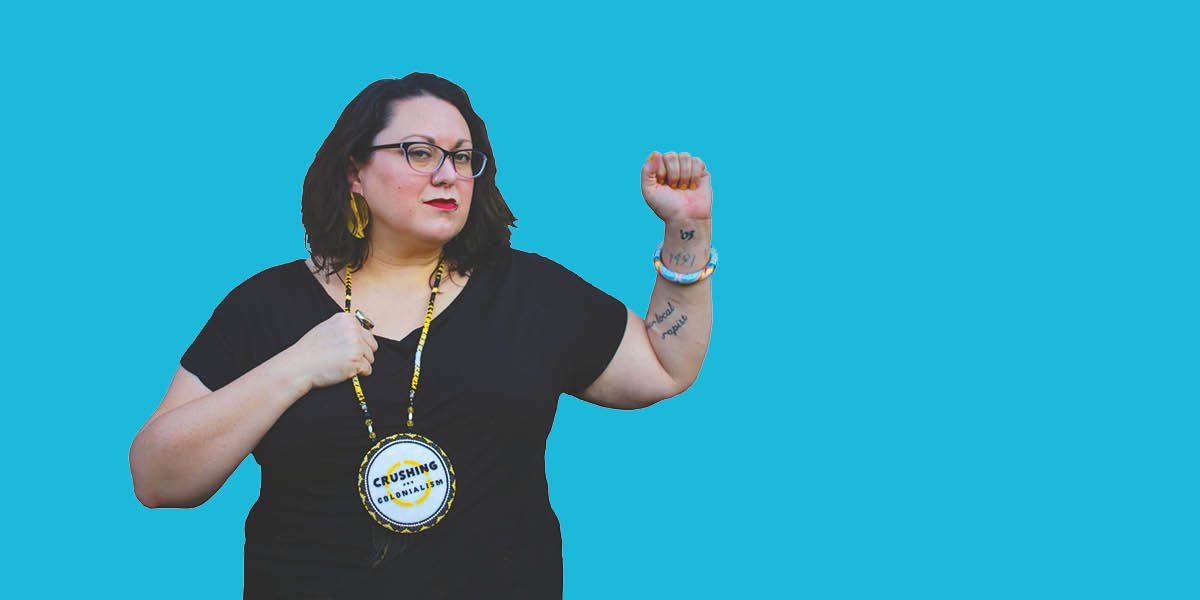I am a citizen of the Cherokee Nation of Oklahoma. I also identify as bisexual, a two-spirit and multiply-disabled person. Revealing that there isn’t any one way to be a woman, disabled, queer or Native is an important part of my work as a journalist and community organiser.
I’ve experienced and witnessed discrimination in most places I’ve lived. Oppression breaks us down as individuals and as communities and furthers our erasure from daily life. Feeling this marginalisation in my youth fuelled my desire to create impact and change. Today, I am on the frontlines fighting for justice. I have grounded my life and work with Fannie Lou Hamer’s words: ‘We are not free, until everyone is free.’
My Indigenous background is more than an ethnic or racial check box. It’s the Cherokee nation that I belong to. It’s our language and our creation stories. It’s our ways of self-governance and sovereignty. Remaining grounded in Indigenous teachings, centering community, the earth, the universe and the seven generations to come are key to growing our sovereignty and the health of our tribal nations. I approach storytelling with this in mind; as such, I think I provide a safer space for Indigenous women and two-spirit people to tell their stories. I’m also able to convey these stories in a richer, deeper way.
My degee (grandma), was a skilled artist. She encouraged my writing and artistic endeavours. She was instrumental in my decision to live in places like Los Angeles and New York City. I wanted to take the opportunities that weren’t given to her and advance all my communities and be in solidarity with all minoritised and oppressed people around the world. I’ve spent my life constantly challenging colonial narratives in some manner.
The disability community is the largest and most diverse of all marginalised communities, yet there’s rarely any media by us
America has a very long history of institutionalising and erasing disabled people. Even when we’re not institutionalised, the world isn’t accessible for us. As disabled people, we’re not allowed the same daily freedoms of the able-bodied, such as access to shopping or even public bathrooms. The disability community is the largest and most diverse of all marginalised communities, yet there’s rarely any media by us. The stories I tell include a disability lens and are even what I call crip Indigenous storytelling*.
I founded Crushing Colonialism in 2016 – a non-profit organisation that tells the stories of Indigenous people globally and supports our storytellers, artists and journalists. We centre our Indigenous relatives who are the least likely to be given a platform, like Indigenous people from the global south or queer Indigenous people. Crip Indigenous storytelling is a part of our work and magazine, giving space to our disabled and chronically ill Indigenous people.
Being able to tell your story is very empowering – all the good, the bad, the ugly of it. No one has the right to colonise my story. Anything worth saying is most likely going to be dismissed or met with force by the coloniser so I might as well speak up, cause a ruckus and fight for myself and others.










